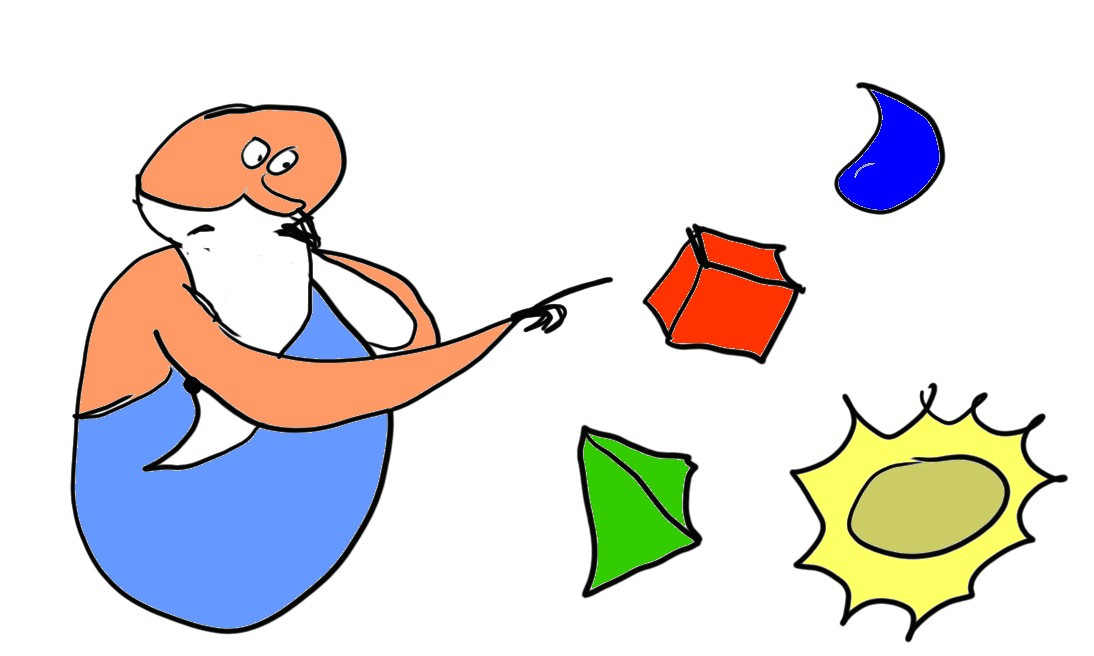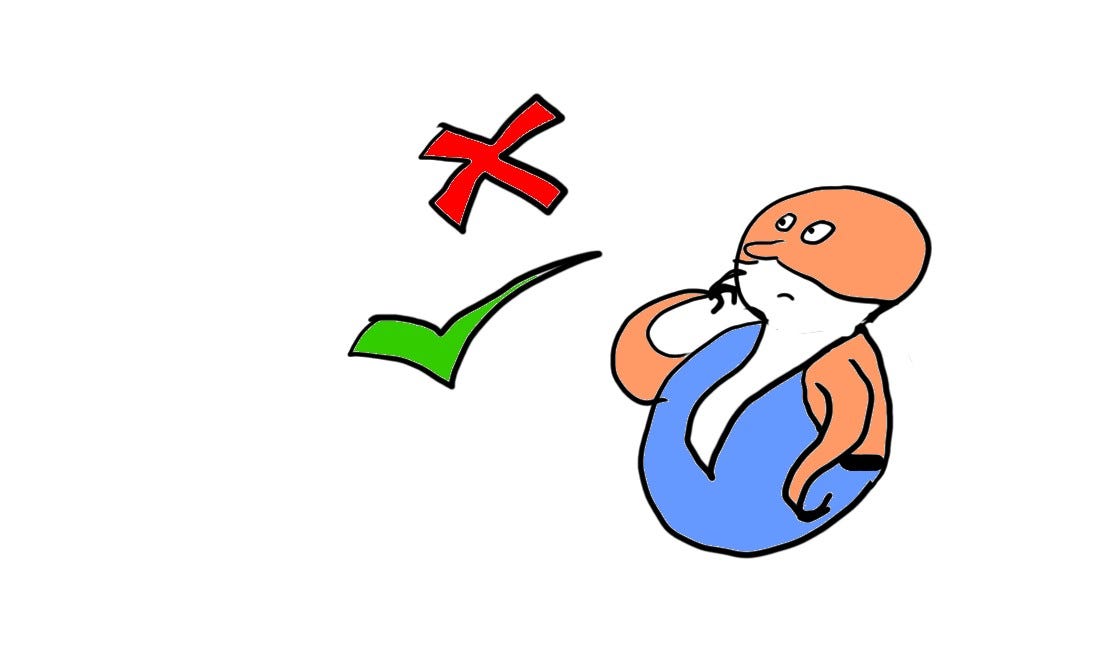Philosophy is such a broad and multifaceted concept that it’s hard to know where to even start. If you ask the question “what is philosophy?” in a way the answer is that it’s kind of everything. Philo means love, and sophy means knowledge, so philosophy is the love of knowledge and kind of spans everything that can be known. Which doesn’t narrow anything down at all.
So in one sense we can talk about everything, but if we want to make things a lot easier for ourselves we can just talk about three things. Because that’s really all the things that there are.
That sounds crazy, and it is a bit, but we have to think really, really broadly here. Of all the ideas that we could ever possibly discuss, anything that we have to talk about, it’s all going to fit into at least one (more likely more than one) of these three categories: Metaphysics, Epistemology, and Axiology.
This is kind of the way that we sort all kinds of question or thought or theory into the broadest possible categories, the three kingdoms of thought. If you like, then you can roughly think of these categories as “What, How, and Why” topics.
Metaphysics - the What
If you want to get right down to brass tacks then metaphysics is the study of reality. Any question you might have about the way things are. I told you it was broad.
This is probably the most ancient form of philosophy because it predates philosophy and probably predates humanity. That is to say, from the moment we’ve been able to start thinking complex thoughts we’ve been thinking about what berries/animals we can east and which ones will kill us.
To try to explain what metaphysics is without your eyes glazing over, think about the word itself. Physics, of course, is the basis for how all objects and forces in the universe operate. It’s what things are made of and how time and space work and how all of those things interact with each other. What we think of as science doesn’t really get any more fundamental than that unless you think of math as something more fundamental (I think it’s more of a language).
Metaphysics is our way of taking another step back and thinking about what’s even more fundamental than physics. It’s like the primordial soup of theory from which science itself springs and in which it operates.
A scientific inquiry might involve different types of particles that exist and how they interact with each other, where a metaphysical inquiry would involve what it means to exist, how you can distinguish between different things, and so on.
For a popular example of a metaphysical question, consider the “Ship of Theseus” thought experiment by Plutarch: Imagine an old wooden ship that, over the years, has its parts replaced one by one as they rot or wear out. Eventually it reaches the point where every single part of the ship has been replaced and none of the original material remains. So, is it the same ship?
Metaphysics is only one of three of the prime branches of philosophy, and an argument can be made that it’s the biggest. There’s debate about its boundaries, and some would say it covers at least some of the other branches as well. To be more precise, you can use the word “ontology” to refer to the study of reality and existence. I tend to say metaphysics more in philosophy because it’s a cool word that most people have heard before.
Epistemology - the How
So we’ve got a world that yearns to be studied and we yearn to study it. But how do we study to begin with? How can we know anything? Can we know anything? What does it mean to know?
Epistemology is the study of knowledge. In some ways you might think of it as even more foundational than metaphysics, because before you can can pin down anything about reality you kind of have to first pin down how you can know things in the first place. Probably the most famous epistemological inquiry was when Descartes said “I think, therefore I am.” He was trying to figure out a first principle to use to know for absolute certain that he existed, and what he figured out was that he knew he existed because he was able to ask the question.
A lot of epistemology comes down to how we know truth from illusion. Things like the limits of perception, introspection, and the extent to which we can trust memories.
It’s important to understand that a lot of the reasoning that goes on in philosophy happens in parallel and is, more than anything, a tool for exercising and strengthening our brains, so nobody ever seriously suggests that we can’t or shouldn’t ask any big questions about the universe until we know if knowledge is possible or if we’re an illusion. This is one of the things that critics of the subject of philosophy harp on about, usually from the point of view of pop science, and it bothers me at least because we’re not really engaged in exactly the same project. I’m looking at you, Neil deGrasse Tyson.
Axiology - the Why
Finally, if we’ve already asked all the questions about what we know and how we know it, what else could there possibly be? That’s where we get axiology - the study of values.
Chiefly, this is about ethics. But everything about aesthetics goes here too. Questions about right and wrong, good and bad, they all fall under this banner.
Ethics as a subject doesn’t try to tell you what’s right or wrong, any more than aesthetics tries to tell you which paintings or movies to like. It’s much more concerned with what it means for something to be good or bad. Is good or bad a feature that exists independent of human beings, or did we make it up?
Even if we did make these things up, are they totally subjective or is there anything universal about them? Why do we have these concepts at all?
Aesthetics falls under this same umbrella, although it’s much less concerned with right and wrong, questions like what is beauty and what is funny are fundamentally about the same thing. Why do we prefer this over that?
From these three primary categories, everything else comes. They lay the foundation for science, reasoning and logic, artistic expression, and the experience of living itself. And so much has been written about it—two and a half thousand years, and that’s just what’s documented and remembered! It is the work of our lives.
When I started Three Minute Philosophy over 10 years ago as a series of videos, I wanted to present the history of philosophy in a much less intimidating way than it’s usually taught, because I strongly believe that this knowledge is our birthright. It’s our inheritance. I hope that you enjoy the ride!







